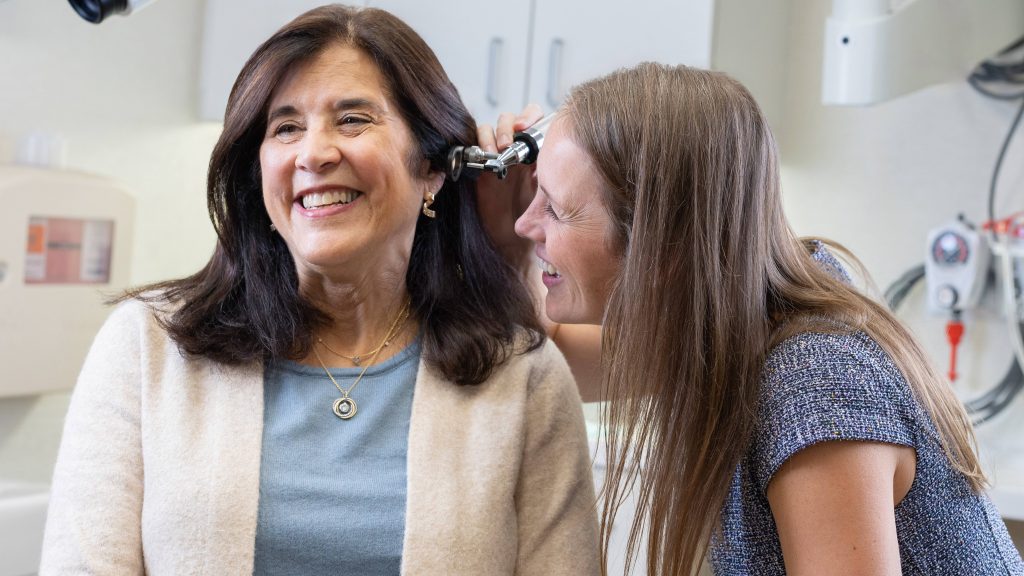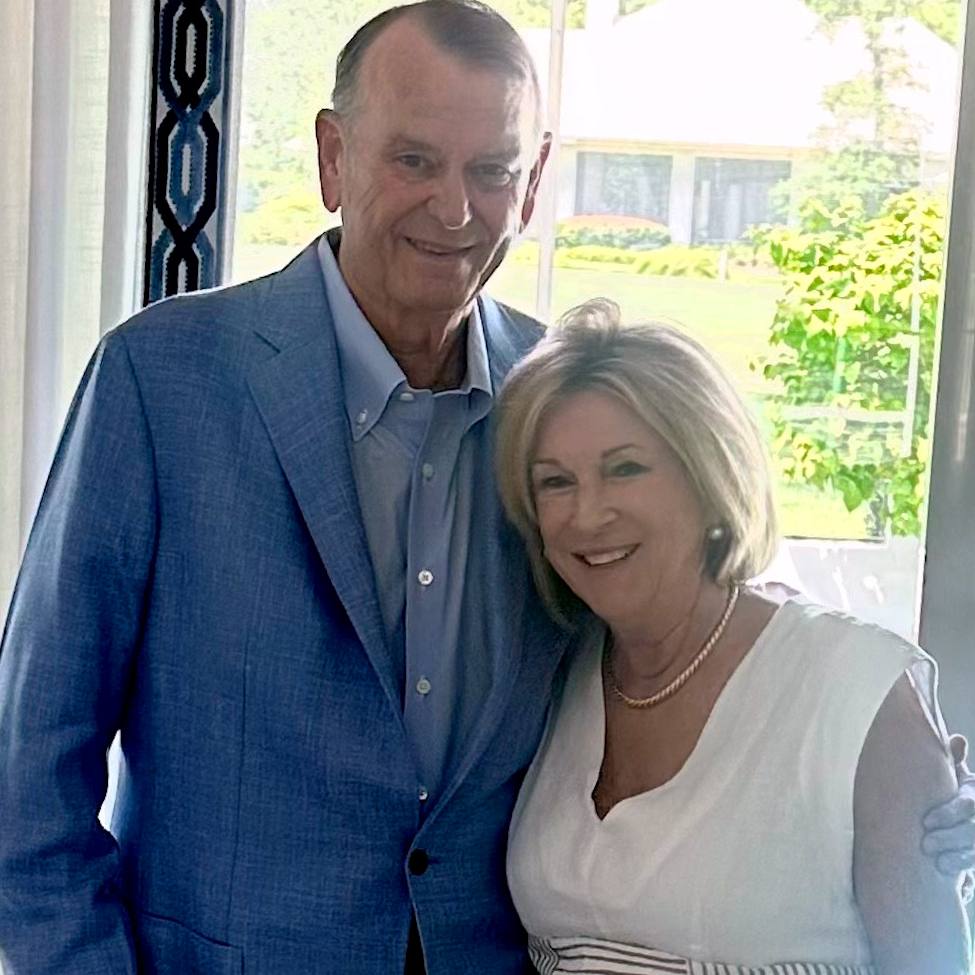-
Cochlear implants restore social butterfly’s hearing

Throughout her life, retired educator and social butterfly Lynn Maiman struggled to hear. After years of progressive hearing loss, bilateral cochlear implant surgery at Mayo Clinic in Florida restored her hearing and got her back to the busy social life and people she loves.
A swim instructor, senior living consultant and retired educator, Lynn Maiman, 65, is a self-described people person. But for most of her busy and active social life, the Jacksonville, Florida, resident struggled to hear what was happening around her.
Like many people who experience hearing loss at a young age, it wasn't always obvious that she was missing something. Maiman explains that she didn’t piece together when her difficulty hearing began until much later in life.
"I remember when I was in high school, I asked my friends how they knew the words to different songs," Lynn says. "They told me they knew from listening to the radio. I didn't know there were lyrics because I could only hear the background music."
Finding ways to adapt
Over time, Lynn found ways to cope with her hearing loss. She recalls sitting in the front row of massive lecture halls so that she wouldn't miss information during her college classes. Later, she began creatively filling in the parts of conversations she couldn't hear and, without realizing it, she began reading lips.
A gut check came when, after working for many years in a successful career centered around children, Lynn found she could no longer understand students when they spoke to her. When she was 50 years old, she had her hearing checked for the first time and was prescribed hearing aids.
"I lived with hearing aids for many years," Lynn says. "They really helped, until they just didn't anymore."
In 2019, Lynn learned she was a candidate for bilateral cochlear implants. Because she was afraid of the procedure and the possibility of losing what hearing she had left, she put it off. In the years that followed, Lynn began to experience balance and cognitive issues. She used a service dog to help her navigate daily living activities and struggled to maintain her social life.
Ready for the next step
In 2023, Lynn decided it was time to revisit the possibility of cochlear implants.
"I made an appointment at Mayo Clinic to get a second opinion. That second opinion quickly became my first choice for treatment," Lynn says. "My care team made sure I understood all my options, and I felt very comfortable scheduling my surgery. I knew I was making the right decision."
Lynn’s surgeon, Dr. Mallory Raymond, an otolaryngologist with specialized training in neurotology at Mayo Clinic in Florida, explains that cochlear implants improve both the clarity and volume of sound, which is different from hearing aids that only provide amplification.
"Our ability to connect with others through communication is at the core of what makes us human," says Dr. Raymond. "Hearing loss can lead to social isolation and cognitive issues. Fortunately, hearing is the one sense that we can restore if it's lost or diminished."
During a simple, outpatient procedure, cochlear implants are placed under the scalp behind the ear. Dr. Raymond says patients typically recover quickly, and the device is activated after a few weeks. An external processor attaches to the outside of the scalp with magnets, and the two components work together to transmit sound.
Once cochlear implants are activated, Dr. Raymond says the process of recovery and auditory rehabilitation begins. With the help of an audiologist, patients learn how to interpret the sounds transmitted by the implant, which are not as complex as what a person hears naturally.
When her first implant was turned on, Lynn says she cried because she didn't recognize what she was hearing as English. But with time and practice, she adapted to the new sounds, and now she can easily understand what she hears.
A life filled with sound
"Lynn's progress with her implants is impressive, and her quality of life has greatly improved," says Dr. Raymond. "That's something I’m thrilled to have been a part of."
Less than one year after receiving her first cochlear implant, Lynn had her second implant placed and activated in late 2023.
A social butterfly once again, Lynn spends her time traveling, volunteering with service animals, offering swim lessons to children and people with disabilities, as well as playing and teaching mahjong. She is also passionate about her part-time work helping seniors find the services they need to age at home, something that wouldn't be possible without being able to hear or understand speech.
"I only wish I had gotten the implants sooner. The technology is amazing, and I'm able to do things that I couldn't do before," Lynn says. "I can hear birds now, and I haven't heard that for a long time. I went skiing and could hear the woosh of other skiers coming up behind me. It's been amazing."
Related Articles






